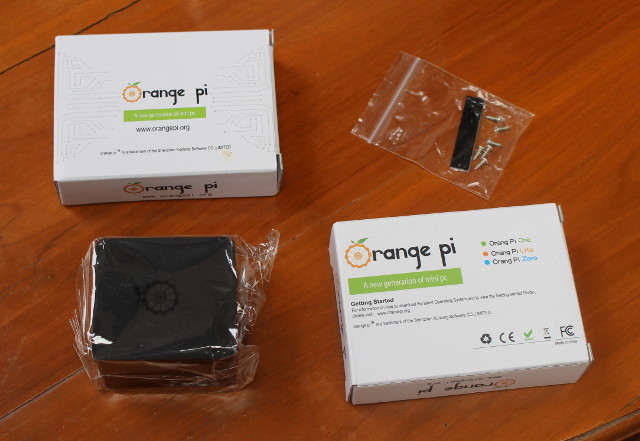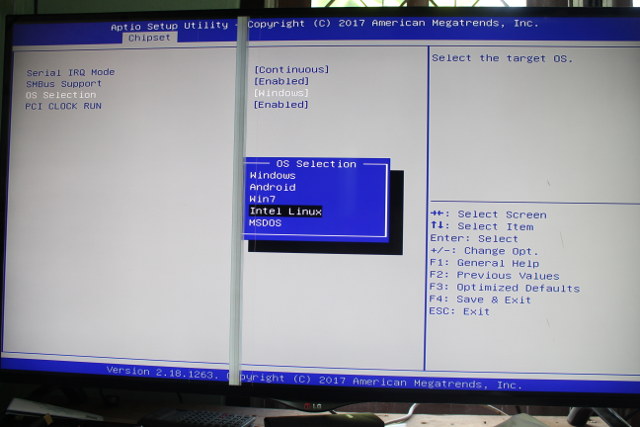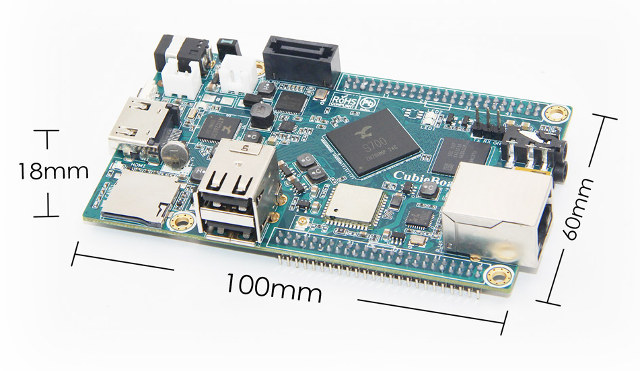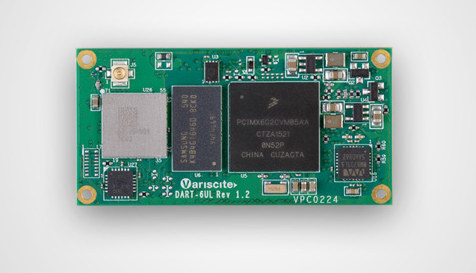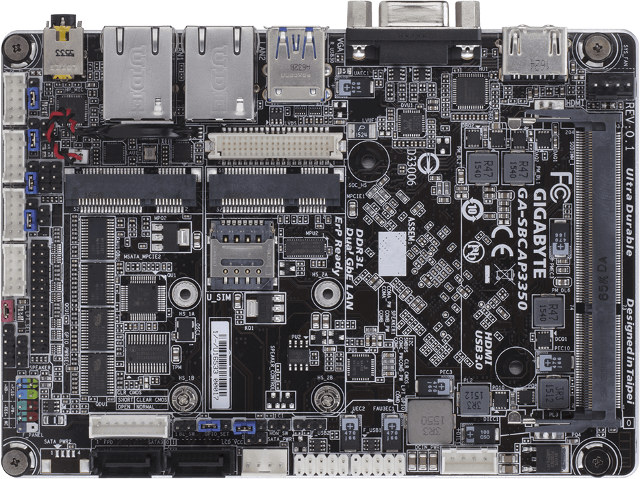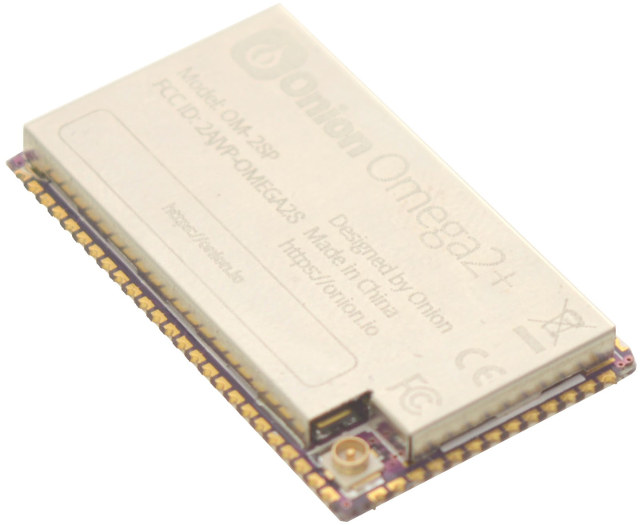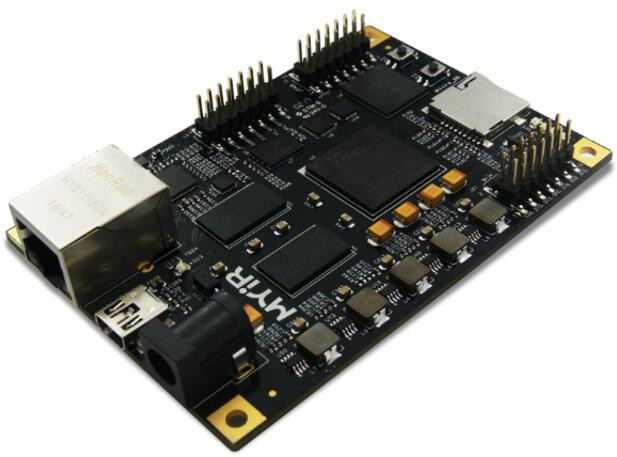A preview release of Google Assistant SDK working with Raspberry Pi 3 and other ARMv7 boards was released in May, and soon after, AIY Projects Voice Kit was offered for free with Raspberry Pi Magazine in order to a complete smart speaker kit working with RPi 3. I wanted to try it on one of FriendlyELEC or Shenzhen Xunlong Allwinner board, since all we need is audio input and output, and an Internet connection. Earlier this month, I came across Orange Pi Zero Set 6 Kit that had all I needed: Orange Pi Zero ARM Linux board, an expansion board with built-in microphone and audio output jack, and a cute and small case to neatly put everything together. Orange Pi Zero Set 6 Kit Unboxing and Assembly Shenzhen Xunlong sent me the kit so that I can try it out. The package includes two Orange Pi packages, the plastic case, […]
Tuxera FAT+ File System for Embedded Systems is Compatible with FAT32, Faster, and Supports Files up to 16TB
Tuxera has introduced FAT+, a new file system for removable storage on embedded systems that’s compatible with FAT32 but without the limitations such as the 4GB file size limit, and brings fail-safety and performance optimization. FAT+ is allegedly one of the recommended file systems by the Universal Flash Storage Association (UFSA) for the next-generation Universal Flash Storage (UFS) cards. Some of the key features of Tuxera FAT+ implementation include: Supported Operating Systems – Android, Linux, Chrome OS, Firefox OS, Tizen Hardware Architecture – ARM, ARM64, Intel x86/x86_64 or compatible, MIPS, MIPS64, PowerPC, SH4, and more Capacity Maximum volume size – 2 TiB with 512-byte sectors, 16 TiB with 4096-byte sectors Maximum allocation block size – sector size in bytes x 128 Maximum file size – 16 TiB Maximum filename length – 255 characters (16-bit) Supported sector sizes – 512, 1024, 2048, and 4096 bytes Interoperability Conforms to all Microsoft FAT […]
Running Ubuntu 16.04 on MeLE PCG03 Apo Mini PC
I completed my review of MeLE PCG03 Apo mini PC with Windows 10 about two weeks ago, and at the time when I tried Ubuntu, all I got was a black screen. MeLE said they would release an Ubuntu image for the board soon, so I did not investigate further. The company has now released Ubuntu 16.04 Desktop ISO via a link on Twitter together with (partial) instructions, and the company told me another company had worked on the image. I sent the link to Linuxium, as in the past MeLE or that other company used his work without asking. I turns out the ISO was identical to Ubuntu 16.04 Desktop ISO released in April last year.
|
1 2 |
linuxium@LINUXIUMONE:~/Downloads$ cmp -l ubuntu-16.04-desktop-amd64.iso.mele ubuntu-16.04-desktop-amd64.iso.canonical linuxium@LINUXIUMONE:~/Downloads$ |
Anyway, I still got the black screen issue using that image, and that’s because I first failed to find the option in the BIOS to change boot to Linux. When the mini […]
Cubieboard7 Board Powered by Actions Semi S700 Processor Becomes a Full-Featured Devkit with DVK522 Expansion Board
Cubieboard6 was announced earlier this year with the same form factor as Cubieboard2 – which was popular a few years ago – by replacing Allwinner A20 with Actions Semi S500 quad core ARM Cortex A9 processor. CubieTech is about to launch Cubieboard7 based on the same design, except for the processor upgrade to the pin-to-pin compatible Actions Semi S700 quad core ARM Cortex A53 processor. I’ve also found out Cubieboard2/6/7 can be connected to DVK522 expansion board to provide easier access more I/Os like LVDS, RGB LCD, VGA, and so on. Let’s start with the Cubieboard7 (CB7) preliminary specifications: SoC – Actions Semi S700 quad core ARM Cortex-A53 processor with Mali-450MP4 GPU System Memory – 2GB LPDDR3 Storage 8GB eMMC flash SATA 3.0 port for 2.5″ HDD/SSD implemented via USB 3.0 switch and JMicron JMS578 USB 3.0 to SATA controller. micro SD card slot up to 32GB Video Output – […]
Variscite DART-6UL SoM, an Alternative to Intel Edison Module
Intel recently announced it will discontinue manufacturing and selling all SKUs of the Intel® Edison compute modules and developer kits. The initial version of Edison was released in the beginning of 2014, with a second version being released by the end of 2014. It was intended for the IoT market, with dimensions of 35.5x25x3.9mm. The Edison features an Intel Atom processor, consisting of two Atom Silvermont cores running at 500MHz. It includes a fixed configuration of 1GB integrated RAM, and 4GB eMMC flash on-board. Dual-band (2.4GHz and 5GHz) Wi-Fi, Bluetooth 4.0 and USB controllers complete the package. According to Intel’s announcement, the last shipment of Edison family boards is planned for December 2017. This announcement will have a critical impact on companies that already integrated the Edison board in their products, as well as the many companies that engaged in the development process of integrating the Edison board into their products. While some of these companies are rushing to place […]
GIGABYTE GA-SBCAP3350 Celeron N3350 Single Computer Computer Offers Upgradeable Memory and Storage
The other day I wrote about MeLE PCG35 Apo mini PC which comes with soldered RAM and eMMC flash, and one person commented about having a model with more than 4GB RAM, but I explained it would not be cost-effective to add more RAM for low cost Windows 10 mini PCs since they would not qualify for Microsoft discount, and it would significantly add to the price. So Microsoft has a big impact on this market segment, and even if you’re going to run Ubuntu or other Linux distributions, those requirements indirectly affect your choice of hardware. One solution is to buy barebone mini PC, or at least with upgradeable RAM and storage, but there aren’t that many with an Apollo Lake processor. Intel NUC6CAYS NUC or GIGABYTE GB-BPCE-3350 are options, and on the Chinese side, you could consider Voyo V1 VMac Mini. AFAIK, none of those options are fanless, […]
Onion Omega2S and Omega2S+ Linux WiFi Modules Launched for OEMs
Onion Omega2 and Omega2+ are tiny WiFi IoT development boards powered by Mediatek MT7688 MIPS processor running LEDE – OpenWrt fork – that sold for just $5 and up in Kickstarter, but are now selling for $7.50 and $9 respectively. The board also support various add-on boards, and a great for evaluation and various projects. But they may not be ideal for people who want to integrate the technology into their products, and that’s why the company have just launched Omega2S and Omega2S+ with about the same specifications, but in a package more suitable to be integrated into products for mass production. Onion Omega2S/2S+ specifications: WiSoC – Mediatek MT7688 MIPS processor @ 580 MHz System Memory / Storage Omega2S – 64MB DDR2 / 16MB flash Omega2S+ – 128MB DDR2 / 32 MB flash Connectivity – 802.11 b/g/n WiFi with u.FL antenna connector Baseboard Interface – Half holes (aka castellated holes) […]
MYiR Introduces Z-Turn Lite Board Powered by Xilinx Zynq-7007S/Zynq-7010 SoC for $69 and Up
Xilinx launched a cost down version of their Zynq-7000 series with Zynq-7000S series SoC combining a single ARM Cortex A9 core with Artix FPGA fabric last year. We’ve already seen sub 100 Euros/Dollars board based on the new SoCs with ZynqBerry and MiniZed boards. MYiR Tech has now launched their own version, a cost-down version of their Z-Turn board, with Z-Turn Lite board featuring either the new cost-down Zynq-7007S or the “good old” Zynq-7010 SoC. Z-Turn Lite specifications: SoC Xilinx XC7Z007S-1CLG400C (Zynq-7007S) with a single ARM Cortex A9 core @ 667 MHz, Artix-7 FPGA fabric with with 23K logic cells, 14,400 LUTs, 66 DSP slices OR Xilinx XC7Z010-1CLG400C (Zynq-7010) with two ARM Cortex A9 cores @ 667 MHz, Artix-7 FPGA fabric with 28K logic cells, 17,600 LUTs, 80 DSP slices. System Memory – 512 MB DDR3 SDRAM (2 x 256MB, 32-bit) Storage – 4GB eMMC flash, 16MB QSPI flash, and […]


